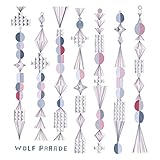Pop music in the autumn
“[The record] ha[d] somehow gotten into this town by mistake.”
—Harry Smith, on his purchase of a recording by
Mississippi bluesman Tommy McClennan, around 1940


What enquiring minds want to know…

Beauty and the Beat
[Lewis; 2005]
Beauty and the Beat is immensely pleasurable, and one record that is possible to judge by its cover. This suburban hip-hop long-player—in the tradition of first- or 1.5-gen R’n’B-esque De La Soul and Jurassic 5, groups that fashion songs and albums (as opposed to deconstructable beats and raps)—is sonically coherent and resolutely listenable, offering up a psychadelic throwback that is weighty, knowledgable, and poppy, all at once. A favorite moment: inclusion of the Dells’ “I Can Sing a Rainbow” (from their 1955 “I Can Sing a Rainbow”-“Love is Blue” medley), a selection that my elementary school chorus class loved to perform for its Aquarian-Age overtones, and a song with wide pop appeal. Recommended.

The Stooges; Fun House
[Rhino; 2005]
The Stooges’ first two are nearly perfect records, originally released by Elektra in 1969/1970 (Pitchfork reviews for both are here). And, by the way, don’t believe the boilerplate “extras are for die-hard fans only; you’ll listen to the second disk once,” &c., because the crystal-clear sound and fab remixing make the Rhino reissues a must-have (and this from a guy with a tin-alloy ear). Skip Ig’s latest hits comp [great review, btw], and head directly to these: highly recommended.
First, props to FF fer their Rodchenko/Stepanova homage: a band that’s smart but not too smart to have fun. One can hear the keening from Detroit already—Franz Couldn’t-be-durst!—but, if I were twenty, I’d already have committed all of Better’s lyrics to memory. Listeners are beginning to get the feeling that the band will be around for a while, especially on the strength of the album’s ballads: the lads can sing, write, and play, power-pop stylings aside—I can hear The Knack every now and again! Recommended (but not for those who shun “My Sharona”).
OMG!: Grambo’s gone soft. [cws::26 Oct]

The Glasgow School
[Domino; 2005]
An early Scottish new-wave entry, Orange Juice has more than a bit of Talking Heads in them, although you can hear Monochrome Set and the Smiths lurking in their musical DNA as well. (Edwyn Collins, the band’s lead singer, established himself as a solo artist in the 1990s with “A Girl Like You” [RA sample] and “The Magic Piper (Of Love),” an entry [RA sample] on the soundtrack of Austin Powers: International Man of Mystery.) This roundup of their singles, EPs, and odd live recordings are perhaps superfluous for the middle-aged (including yer faithful blogger), but recommended for youngsters who missed the era by virtue of being born too early, or for nostalgic skinny-tie-wearing hipsters whose record collections have lost their charge.

The Witching Hour
[Rykodisc; 2005]
Here’s your soundtrack for All Hallows’ Eve: Ladytron’s latest isn’t the departure some herald—it’s more that the band remains standing whilst the other electroclash pretenders have disappeared—but this release seems no more winsome than before: in fact, I’d say they’ve sold off some excess charm in exchange for urgency, at a net loss. The quartet’s earlier output landed them squarely in a pop hall-of-fame wing with Kraftwerk and New Order, outfits which fashion emotive music from frosty sounds. I still haven’t given up on The Witching Hour—but I’m not sure that I really care, and am feeling the pull of “Playgirl” and “Seventeen.”

Anthology of American Folk Music
[Smithsonian Folkways; 1997]
On beautiful autumn days, I’m sometimes listening to Harry Smith’s Anthology of American Folk Music (reissued on CD in 1997 by Smithsonian Folkways, but only recently purchased) with the window rolled down, and taking secondary roads everywhere I drive. I know next-to-nothing about American folk, and haven’t listened to anything of the sort since a brief flirtation in the mid-1970s with bluegrass music—those who know me may be surprised that I would regularly attend the annual Deer Creek Fiddlers Convention in these parts—but I find the collection compelling, and am reading as much as I can about the Anthology’s history to help frame the thing critically. A great deal is written about Mr. Smith’s profession, listed alternately as filmmaker, artist, and (obvs.) musicologist, but it’s the scarlet autodidact, his storied love of controlled substances, and the production of musical history as personal history that seems to best explain the Anthology, characterized by Griel Marcus as “disguised as a textbook; it was an occult document disguised as an academic treatise on stylistic shifts within an archaic musicology.”

Tender Buttons
[Warp; 2005]
I’ve generally felt as though Broadcast’s recordings are more compelling in theory than in practice—and, hey, “Book Lovers” [RA sample] is on the Austin Powers soundtrack, too—but I continue to purchase their new releases, somehow hoping they’ll find their way into my haid. And the newly-stripped down combo’s latest, Tender Buttons, seemed initially to confirm that this wouldn’t capture driving-time-share—that is, until I began to play it during the long rainy days of two weeks ago, when the vocals came forward, relegating the scratchy electronics to the back. A great melancholy listen.

Extraordinary Machine
[Sony; 2005]
Pulled in by an extraordinarily flattering review by Sasha Frere-Jones in the New Yorker,
The album contains many moments both of lushness and of restraint—it calls to mind Elvis Costello’s 1982 Imperial Bedroom, a record that displays a similar balance of attacks and retreats. Extraordinary Machine is just fifty minutes, and it feels short; you want to replay it immediately. It’s the kind of album that makes an artist’s previous work sound better, a record that makes converts out of doubters.
I regretted my purchase of Extraordinary Machine, Fiona Apple’s first release in six years. It’s servicable, sometimes fine, pop, but no more: bide your time.

Prairie Wind
[Reprise; 2005]
I didn’t pick up Prairie Wind, but listened to it enough in the record store to know that it’s yet another Neil Young folk release, despite what you might hear about it joining the ranks of those “hallowed,” Harvest-like albums. It’s OK, but better to take this opportunity to seek out Young’s last release, Greendale, and get a whiff of what makes him so special. I had occasion to catch Greendale on the cable TV a month back, and—much like his musical oeuvre, which makes a virtue of artful amateurishness, emotion, and optimism—its literary character works. I listen to “Be The Rain” over and over again.

Buy Radio Pyongyang:
Commie Funk and Agit Pop
from the Hermit Kingdom
at Sublime Frequencies or
Amazon
The latest batch of recordings from Sublime Frequencies delves deeply into an alternate axis of evil, looking at musical recordings from the repressive regimes of North Korea, Burma, and (well, formerly repressive but currently chaotic) Iraq. The Iraqi entry, Choubi Choubi! Folk and Pop Sounds from Iraq (clicking on the title takes one to the label; Amazon here), is a bit of a mishmash, drawing on records across decades and from a variety of styles. Guitars of the Golden Triangle: Folk and Pop Music of Myanmar, Vol. 2 (Amazon) is reminiscent of the Thai Beat A Go-Go series reviewed here earlier in the year, without the kitsch and goofiness: this recording contains legitimately interesting music. But it is the manifestly weird Radio Pyongyang: Commie Funk and Agit Pop from the Hermit Kingdom (Amazon) that takes the prize for best of the lot; these radio recordings from the early 1990s utterly defy characterization, athough the folks at SF try: “a heady mix of Stalin opera, Tokyo karaoke and brooding impressionism, the sound of present-day Pyongyang distills into warped agit-pop and lost-in-time commie funk.” So there.

Apologies to the Queen
Mary [Sub Pop; 2005]
Finally, this sure-to-please release from Wolf Parade (not to be confused with Wolf Eyes, also on Sub Pop) garners inevitable comparisons with Arcade Fire, but that has mostly to do with their sound—one that sounds digitally wavered—and not their tenor. An accurate bloodline would trace back to Big Country, with their propensity for happy, anthemic rave-ups and ringing guitar tones. Queen Mary is a big, stirring record, and an antidote for overdetermined rock music. Recommended.



































1 Comments:
Been a fan of the Harry Smith for years, and it never gets old. Always want to hear "John the Revelator" and other faves (used "La Dansuese" as part of my wedding music). You may know that there's a Vol.4, more recently released -- some good tracks but not as amazing as the rosetta stone-like original 1-3.
I too was disappointed in Fiona's latest, tho it's grown on me, but speaking of Volumes -- I have a feeling you'd enjoy my current Coolest Record in the World: ETHIOPIQUES, Vol. 4. It's the early 70's jazz that Jarmusch used in "Broken Flowers," but a whole CD of just the Ethiopian stuff (obviously), and man... can't get enough of this funky stuff.
Post a Comment
<< Home